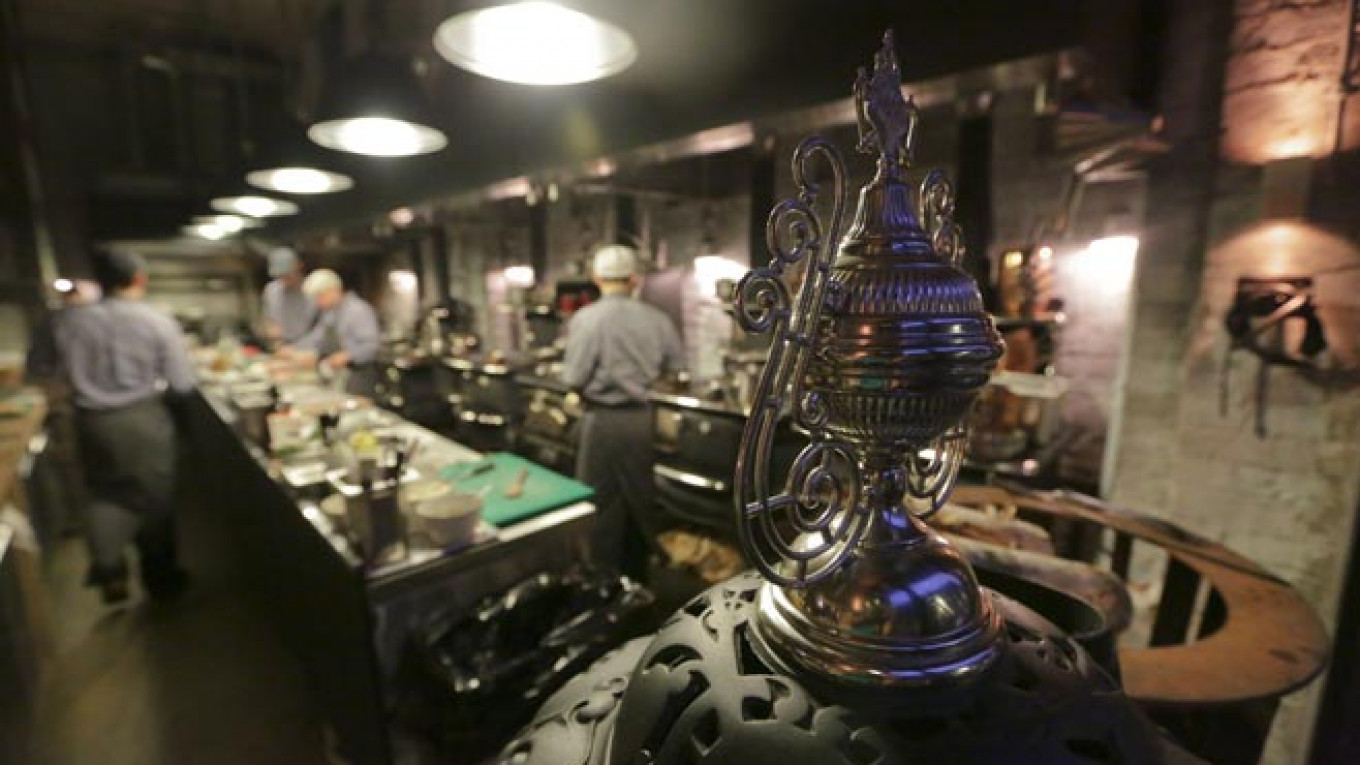A bill that would make it obligatory for more small and medium-sized businesses to pay property tax passed both houses of Parliament this week, and is now waiting for the president's approval.
The law would make it mandatory for entrepreneurs that use simplified taxation procedures to pay tax on owned property, resulting in a twofold increase of the tax burden, said Alexei Nebolsin, a member of the board of Opora Rossii on Tuesday.
The organization is trying to persuade the president to veto the bill, he added, but he was not sure the efforts would bear fruit.
Businesses that have less than 15 staff, a 60-million-ruble ($1.7 million) turnover and no more than 100 million rubles in assets, currently use simplified accounting procedures and do not have to pay income tax, added value tax and property tax.
"Ninety percent of small and medium-sized businesses that bought property switched to simplified procedures to save on property tax," said Nebolsin.
Many of them will have to pay the tax if the new law is adopted, he said, adding that the burden for Moscow-based businessmen will be heavier than in other regions. As of 2014, commercial property taxation in Moscow is based on its cadastral value, which is closer to the market price rather than to the often far lower inventory value used as a benchmark before.
According to Opora Rossii, there are more than 350,000 individual entrepreneurs and firms that use simplified procedures in Russia, 20,000 to 25,000 of which are based in Moscow.
There are no exact figures on how many businesses actually own property, Nebolsin said, but the association's rough estimates suggest that their tax burden could grow to about 200 billion rubles ($5.7 billion), double what they pay today.
"At the same time the fiscal policy declared by the government last year said that the taxes for small and medium-sized businesses will not grow until after 2017," Nebolsin said.
But Maxim Reshetnikov, the head of Moscow's economic policy and development department, said the tax burden on small and medium-sized business will not increase, at least within the city.
"Only [owners of] office centers, restaurants and public services [like dry cleaners, repair shops, barbers] with an area exceeding 5,000 square meters will be affected in case the law is adopted," Reshetnikov said, Rossiiskaya Gazeta reported Tuesday. All other categories will continue to enjoy property tax freedom, he said.
A medium-sized mall or office building typically measures 5,000 square meters, far larger than the average small business.
Growing property taxes will still hit small businesses, even if indirectly, the Opora board member said.
"Even if a businessman does not own the premises where he has set up a shop or a restaurant, the rent for him will increase substantially because the property owner will have to pay taxes based on its cadastral value, which is dozens of times more than the inventory price," Nebolsin said.
Andrei Podenok, president of Moscow Association of Entrepreneurs, said that a higher property tax will hit all businesses, even if they had not switched to the simplified procedure, adding that since the beginning of the year property tax in the city has grown from 2 to 50 percent, depending on location.
Ilya Kuznetsov, who owns several flower shops and bakeries across Moscow, shook off worries concerning property taxes but confirmed that he was facing skyrocketing rental prices.
He said that over the last few years he has gotten rid of much of his property and the tax will not affect his business directly.
"What does hit the most is rental payments," Kuznetsov said. "Those have gone up three times last year and twice more since the beginning of 2014. Whatever the reasons for that, this does not make our life any easier," he added.
Contact the author at [email protected]
A Message from The Moscow Times:
Dear readers,
We are facing unprecedented challenges. Russia's Prosecutor General's Office has designated The Moscow Times as an "undesirable" organization, criminalizing our work and putting our staff at risk of prosecution. This follows our earlier unjust labeling as a "foreign agent."
These actions are direct attempts to silence independent journalism in Russia. The authorities claim our work "discredits the decisions of the Russian leadership." We see things differently: we strive to provide accurate, unbiased reporting on Russia.
We, the journalists of The Moscow Times, refuse to be silenced. But to continue our work, we need your help.
Your support, no matter how small, makes a world of difference. If you can, please support us monthly starting from just $2. It's quick to set up, and every contribution makes a significant impact.
By supporting The Moscow Times, you're defending open, independent journalism in the face of repression. Thank you for standing with us.
Remind me later.






